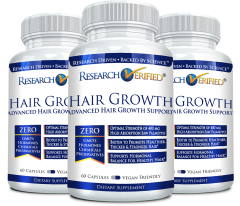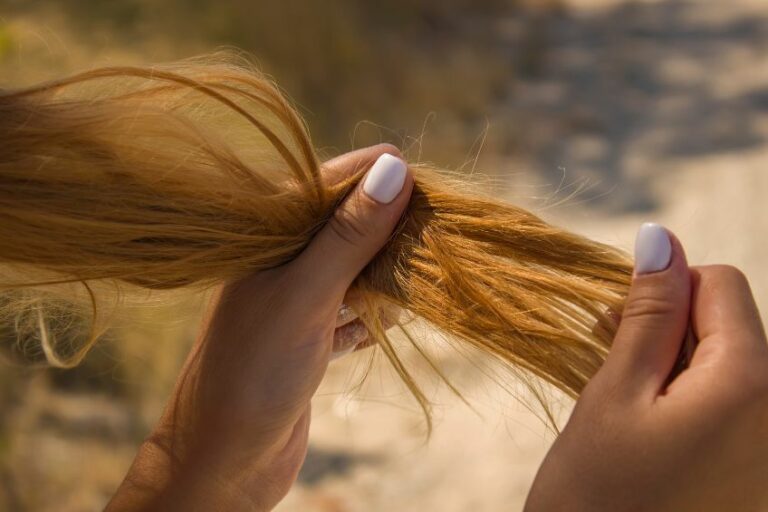Millions of Americans suffer from hair loss, so if you are experiencing strange irregularities in your hair growth and hair patterns then you are not alone. Various conditions, viruses, and illnesses can contribute to rapid hair loss, with mono representing one of the most recent additions to the list of those that do. This is based on new research pinpointing a link between mono, serious health disorders as a result of the illness, and unnatural hair loss. Read on to understand this relationship in more detail and learn the best strategies to combat hair loss associated with mono and related health conditions.
What is Mononucleosis (Mono)?
Mononucleosis (Mono) is a highly infectious illness commonly referred to as “the kissing disease” as it is highly transmissible via kissing, as well as sharing beverages and cutlery. The illness is usually caused by the Epstein-Barr virus (EBV), a virus that individuals commonly carry with little knowledge of its presence (1). The virus is primarily responsible for spreading mono, which although not extremely serious, can lead to more dangerous conditions among individuals with weak immune systems or left untreated. Some individuals experience minor symptoms while others can experience more severe symptoms.
What Are the Symptoms of Mono?
Mono’s symptoms can range from being fairly insignificant to being more serious and threatening. It’s important to treat your symptoms, even if they are not so severe, in order to minimize the risk of developing further health complications. Below, we outline the most common symptoms of mono:
- Fever
- Fatigue
- Discomfort in one’s throat
- Swollen lymph nodes (2)
- Muscle aches and pains
- Loss of appetite
Bear in mind that these are common symptoms experienced as a result of various illnesses and conditions. For this reason, we advise contacting your health practitioner in the event of experiencing one or more of these symptoms to receive an accurate diagnosis.
Is There a Link Between Mono and Hair Loss?
While we have noted the most common symptoms of mono, there is growing concern regarding the impact the illness can have on hair loss. In fact, new studies report a link between mono and hair loss with specific reference to the EBV virus that causes mono (3).
These studies make specific reference to hair loss associated with Alopecia areata, an autoimmune disorder that increases the rate at which individuals lose their hair. On average, 7 million people across the country suffer from Alopecia areata, and medical professionals are beginning to determine a commonality between the experience of this disorder and the spread of mono among individuals (4).
In most cases, the reports suggest a link between Alopecia areata and high levels of stress that individuals can experience while suffering from mono (5). As with any illness, stress surrounding taking time off from work, the inability to perform household duties, and lack of energy to combat external and internal stresses can elevate stress levels within the body.
In order to minimize the risks associated with mono, specifically the development of more serious conditions that can cause hair loss, individuals should maintain healthy lifestyles that reduce their experience with stress.
How to Get to the Root of Hair Loss From Mono
To get to the root of hair loss from mono, individuals need to primarily aim to minimize stress as a contributor to Alopecia areata that can create an imbalance in the hair growth cycle. Below, we explore several strategies to reduce stress so that you can minimize the impact of autoimmune disorders as a result of mono:
Change Your Diet
Your hair needs essential nutrients, vitamins, and minerals to grow stronger and maintain a regular hair growth cycle. Dietary changes are the first step to ensuring that your body receives enough of these nutrients throughout the day. The most prominent types of foods are those that are high in protein, vitamins, and biotin to name a few. Here are a few of our recommendations:
- Eggs
- Avocadoes
- Berries
- Fatty fish
- Nuts and seeds
- Spinach
- Sweet potatoes
Regular Exercise
Individuals must exercise regularly to reduce their experiences with stress. All sorts of exercises, from running to weightlifting, swimming, and cycling, will reduce stress levels as exercising encourages proper blood flow and circulation in the brain and throughout the body. Furthermore, exercise encourages the brain to release endorphins that, among other chemicals, are responsible for alleviating stress (6).
Practice Relaxation Techniques
Yoga and meditation are the most prominent relaxation techniques trending in the health and wellness industry. This is because they are extremely beneficial for the brain and body. Yoga encourages movement that improves circulation while meditation helps calm the mind for dealing with anxiety and stress more effectively. Other relaxation techniques exist, such as reading a book or taking a bath, so be sure to explore all of your options to find a strategy that works for you.
grow longer, stronger hair today!

Combat hair loss by consistently using Research Verified® Hair Growth which contains key, natural ingredients that are specifically formulated to combat hair loss and grow luscious hair. The high concentrations of clinically-studied nutrients, stimulate your hair follicles to help stop hair loss as well as stimulate new hair growth for a healthy head hair. With a 365-day money-back guarantee, it would be a crime not to try Research Verified® Hair Growth today.



